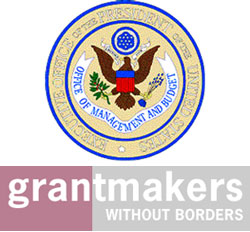
NEW YORK (IPS/GIN) – In the name of “global war on terror,” the U.S. government is waging war on non-governmental organizations by applying “shortsighted, undemocratic policies” that are “constraining the critical activities of the charitable and philanthropic sectors, stifling free speech, and ultimately impeding the fight against terrorism.”
This is the conclusion of a new white paper prepared by two prominent non-governmental organizations, OMB Watch and Grantmakers Without Borders. OMB stands for the government’s Office of Management and Budget, the White House office responsible for devising and submitting the president’s annual budget proposal to Congress.
The report charges that the government views nonprofits as “conduits for terrorist funding and a breeding ground for aggressive dissent.” It accuses the courts of being “overly deferential” to the U.S. Treasury Department, which is responsible for conducting programs designed to stem the flow of money to terrorist organizations.
It contends that federal agencies “ignore nonprofits’ calls for change,” and says, “Congress has not utilized its oversight powers to review counterterrorism programs.”
The report says that the U.S. nonprofit community today “operates in fear of what may spark (the government) to use its power to shut them down.”
Kay Guinane, director of Nonprofit Speech Rights at OMB Watch, argued that the current approach to counterterrorism as it relates to nonprofits and foundations is ultimately counterproductive.
She told IPS, “In order to preserve the rights of all nonprofit organizations, and indeed, the rights of all people, all levels of government must conduct their counterterrorism activities in a way that consistently protects liberty and civil society. Otherwise, Americans and others lose safeguards that were designed to protect us all from creeping tyranny.”
The report, “Collateral Damage: How the War on Terror Hurts Charities, Foundations, and the People They Serve,” asserts that “current counterterrorism policies are based on a flawed legal regime and broad, vague definitions; the policies rely on flawed assumptions about terrorism and nonprofits; and the policies are abused by the government to engage in unconstitutional, political use of surveillance powers.”
The Treasury Department’s Office of Foreign Assets Control (OFAC) is the target of much of the report’s criticism of the government’s approach. After the Sept. 11, 2001 terrorist attacks on the U.S., Congress gave the government sweeping new powers to crack down on not-for-profit organizations that were using their charitable status as cover for funneling funds to terrorist groups.
These powers include the authority to designate any charity as a material supporter of terrorism. This action demands virtually no due process from the government, denies the target to see the evidence against it, and can result in freezing of a charity’s assets, effectively shutting it down. Since 9/11, the government has shut down dozens of charitable groups, but only three have ever been charged and brought to trial for supporting terrorist causes. None has been convicted.
The report explains that current counterterrorism financing policy allows the funds of designated charitable organizations to sit in frozen accounts indefinitely. Treasury’s 2006 Terrorist Assets Report estimates that $16.4 million in assets from “foreign terrorist organizations,” which include charities and foundations, have been frozen since 9/11.
The laws that authorize the designation and freezing of assets do not provide any timeline or process for long-term disposition, so they remain frozen for as long as the root national emergency authorizing the sanctions lasts. To date, no blocked funds have been released for charitable purposes, despite several requests, the report claims.
It also asserts that the government has used its surveillance powers against charitable groups for political purposes. It charges, “In addition to providing aid and services to people in need, charitable and religious organizations help to facilitate a free exchange of information and ideas, fostering debate about public policy issues. The government has treated some of these activities as a terrorist threat. Since 9/11, there have been disturbing revelations about the use of counterterrorism resources to track and sometimes interfere with groups that publicly and vocally dissent from administration policies.”
In 2005, the American Civil Liberties Union (ACLU) launched its Spy Files Project and uncovered an intricate system of domestic spying on U.S. nonprofits largely condoned by expanded counterterrorism powers within the USA PATRIOT Act.
The report finds that “U.S. counterterrorism laws have made it increasingly difficult for U.S.-based organizations to operate overseas. For example, after the 2004 tsunami, U.S. organizations operating in areas controlled by the Tamil Tigers, a designated terrorist organization, risked violating prohibitions against ‘material support’ when creating displaced persons’ camps and hospitals, traveling, or distributing food and water.”












